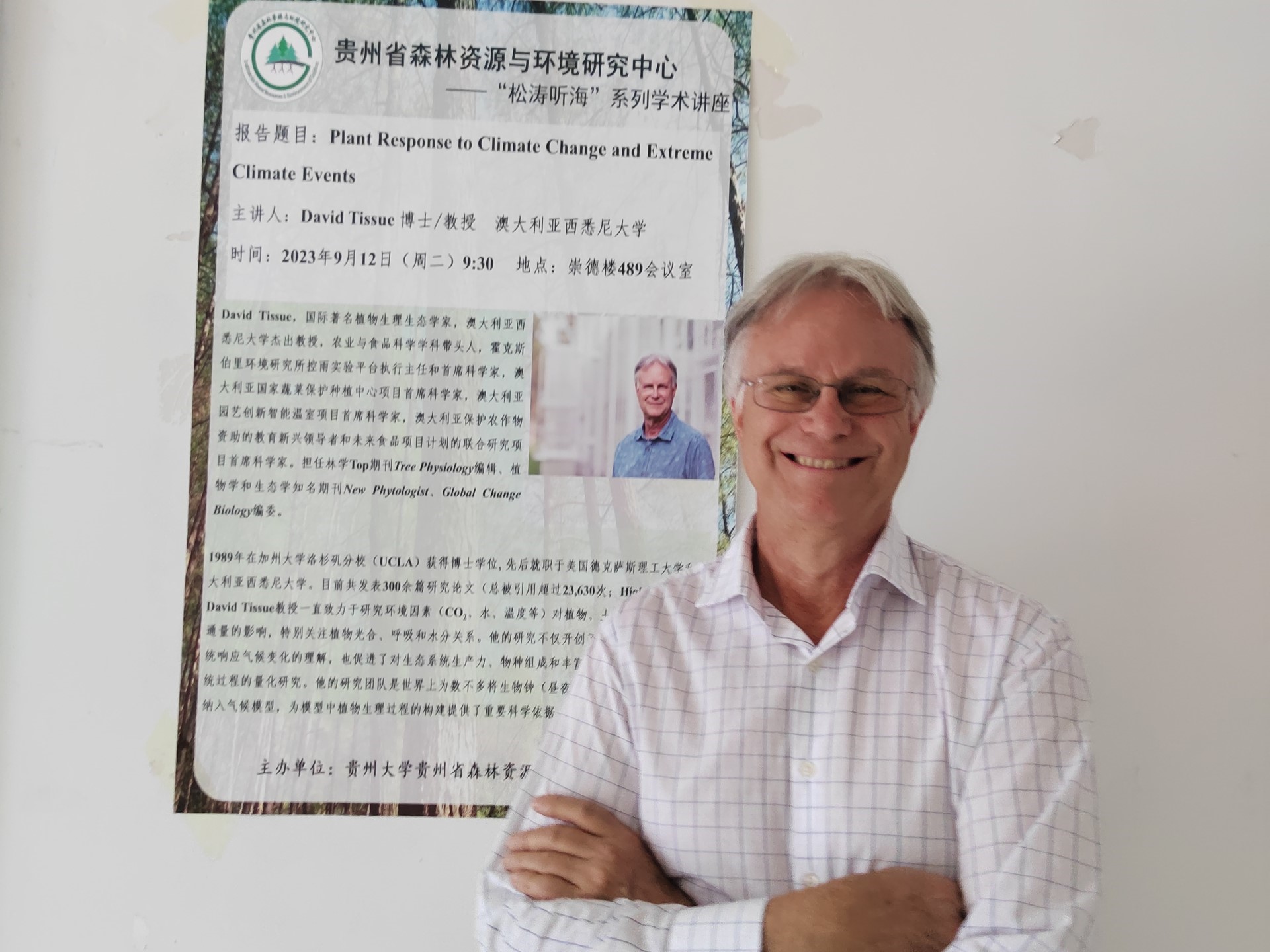Future Food Systems’ Future farming Research Program Lead David Tissue, a Distinguished Professor at Western Sydney University’s Hawkesbury Institute of the Environment and Director of the National Vegetable Protected Cropping Centre (NVPCC), took a whirlwind trip to China over the semester break.
Over two jam-packed weeks, Dist. Prof. Tissue and his wife visited several of his former PhD students as well as world-class research institutions in three major Chinese cities, scoped out some state-of-the-art equipment – including a very tall flux tower – and was treated to many memorable meals.
“My wife and I’s recent visit to China was outstanding,” Dist. Prof. Tissue told the FFS Working Group on his return in October. “We spent two weeks there, visiting several of my former students.
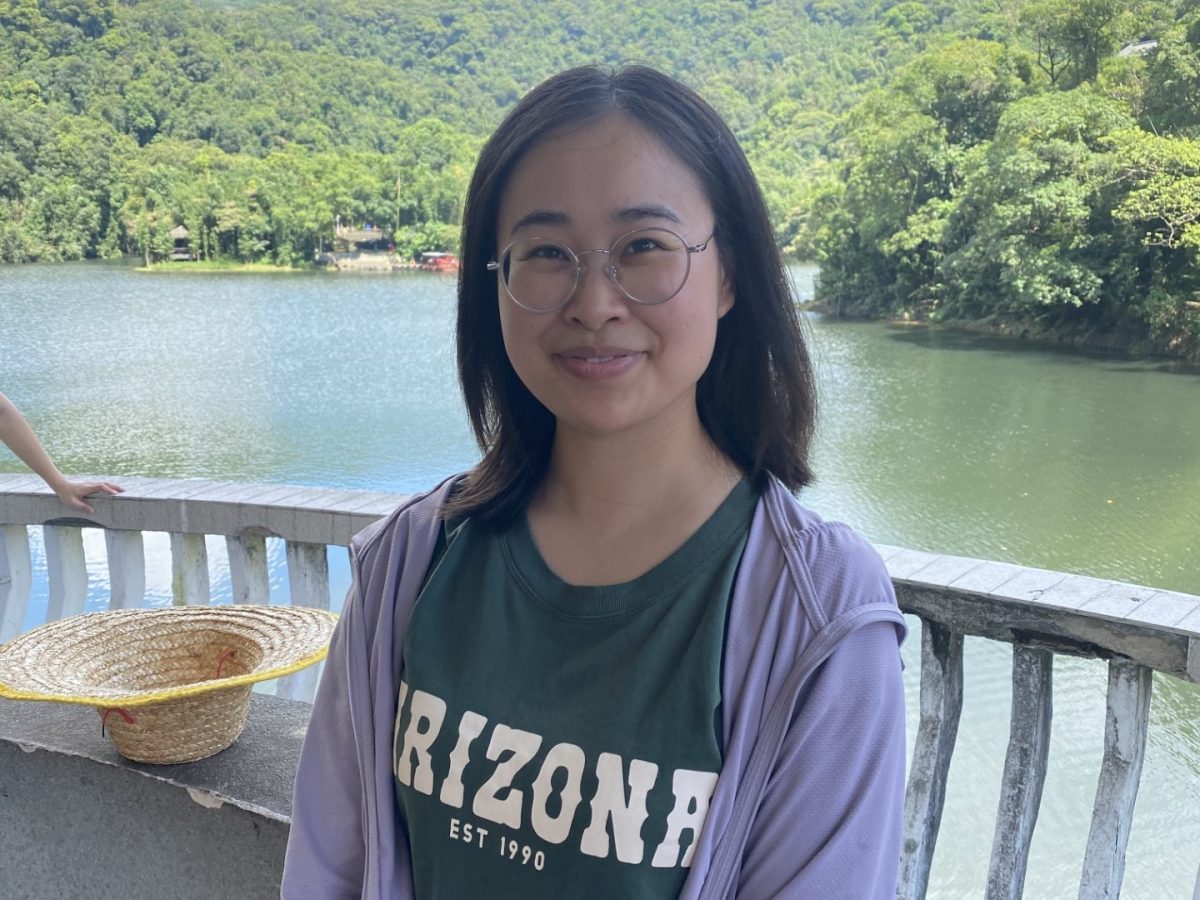
Dr Ting Wu, one of several former Western Sydney University students Dist. Prof. Tissue caught up with in China. Image courtesy of Ting Wu
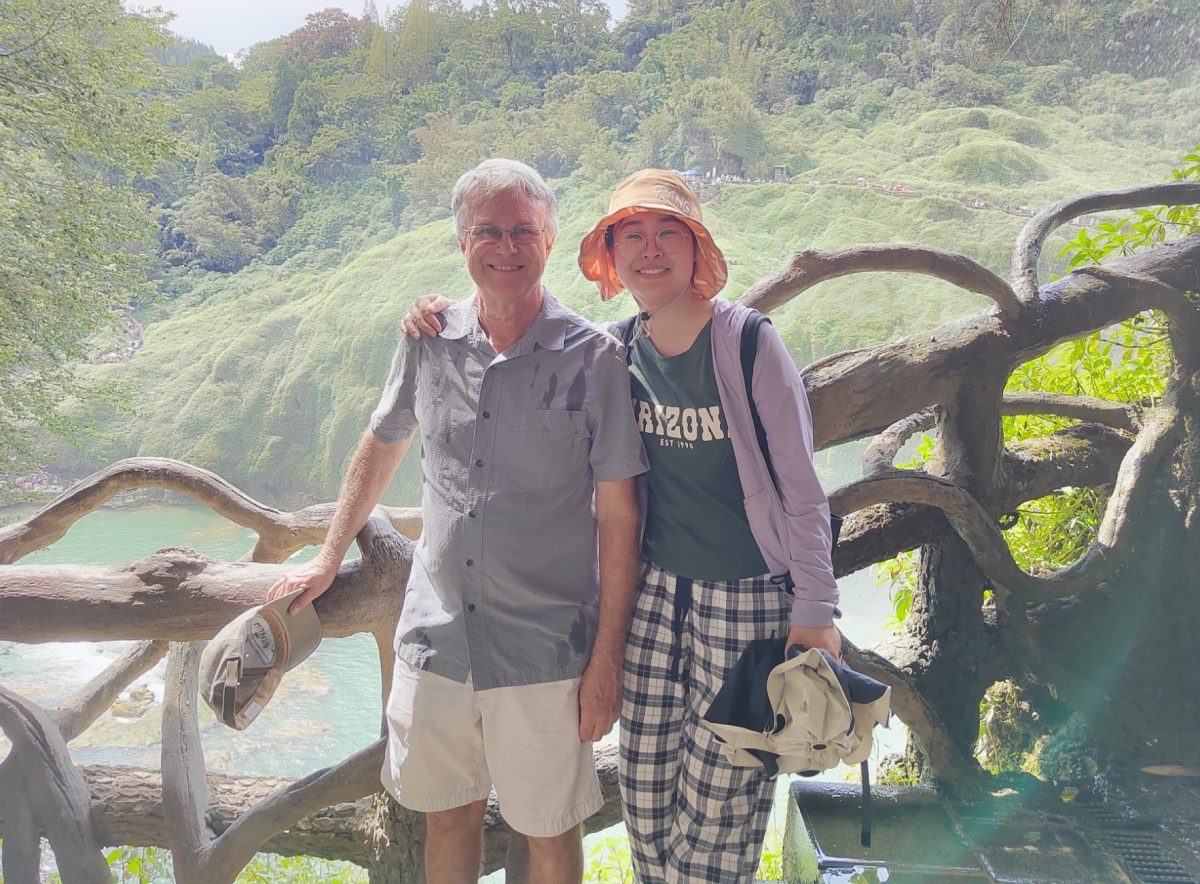
Dist. Prof. Tissue and former student Dr Ting Wu. Inage courtesy of Ting Wu
“First stop was Guangzhou, where we were hosted by the Chinese Academy of Sciences for three days,” Dist. Prof. Tissue says. “Unfortunately, that leg of the trip was disrupted by a typhoon, which hastened our departure!”
“We also travelled to Guiyang in the west of China to visit two more graduate students there – both of whom plan to re-visit Australia later this year, travelling to Melbourne and back to Western Sydney University.”
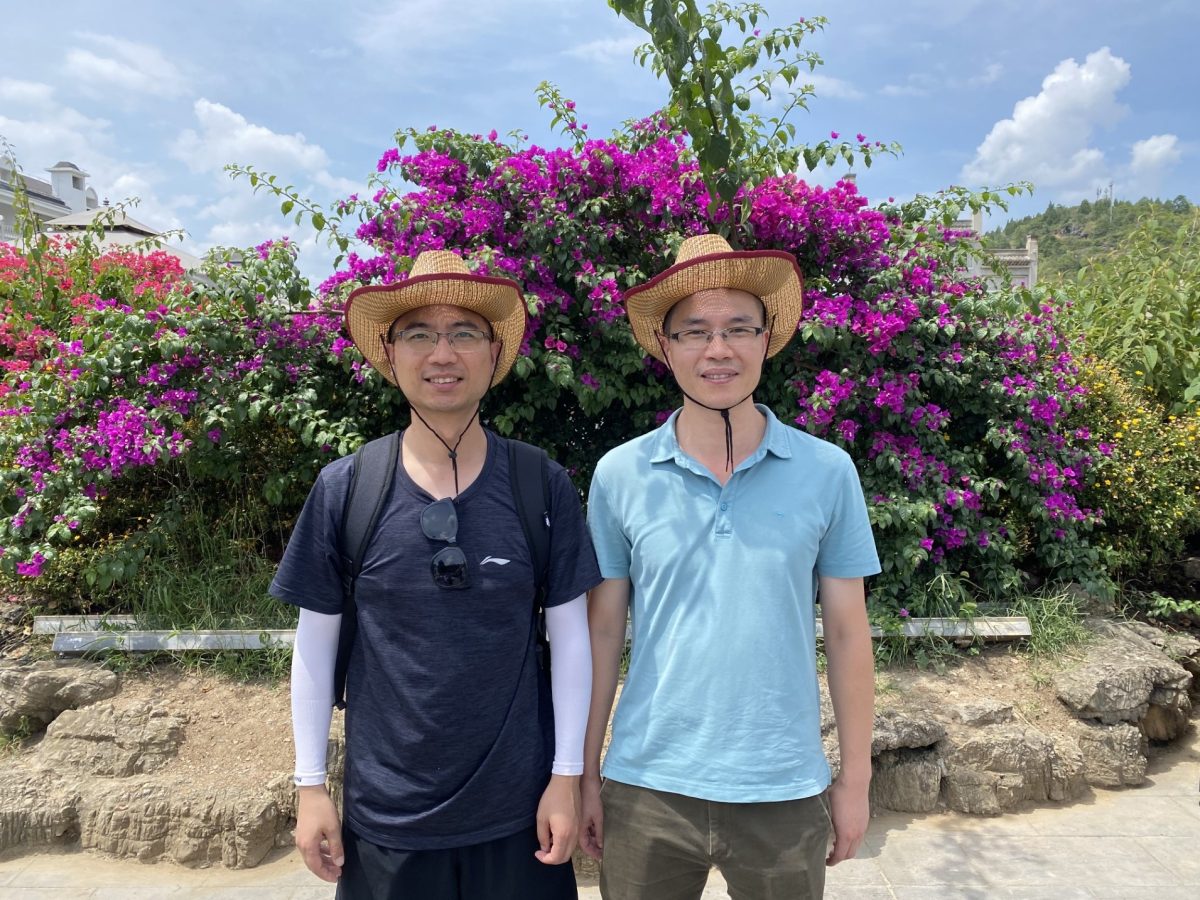
Dist. Prof. Tissue was delighted to catch up with former WSU students Honglang Duan and Guomin Huang on his trip. Inages courtesy of Ting Wu
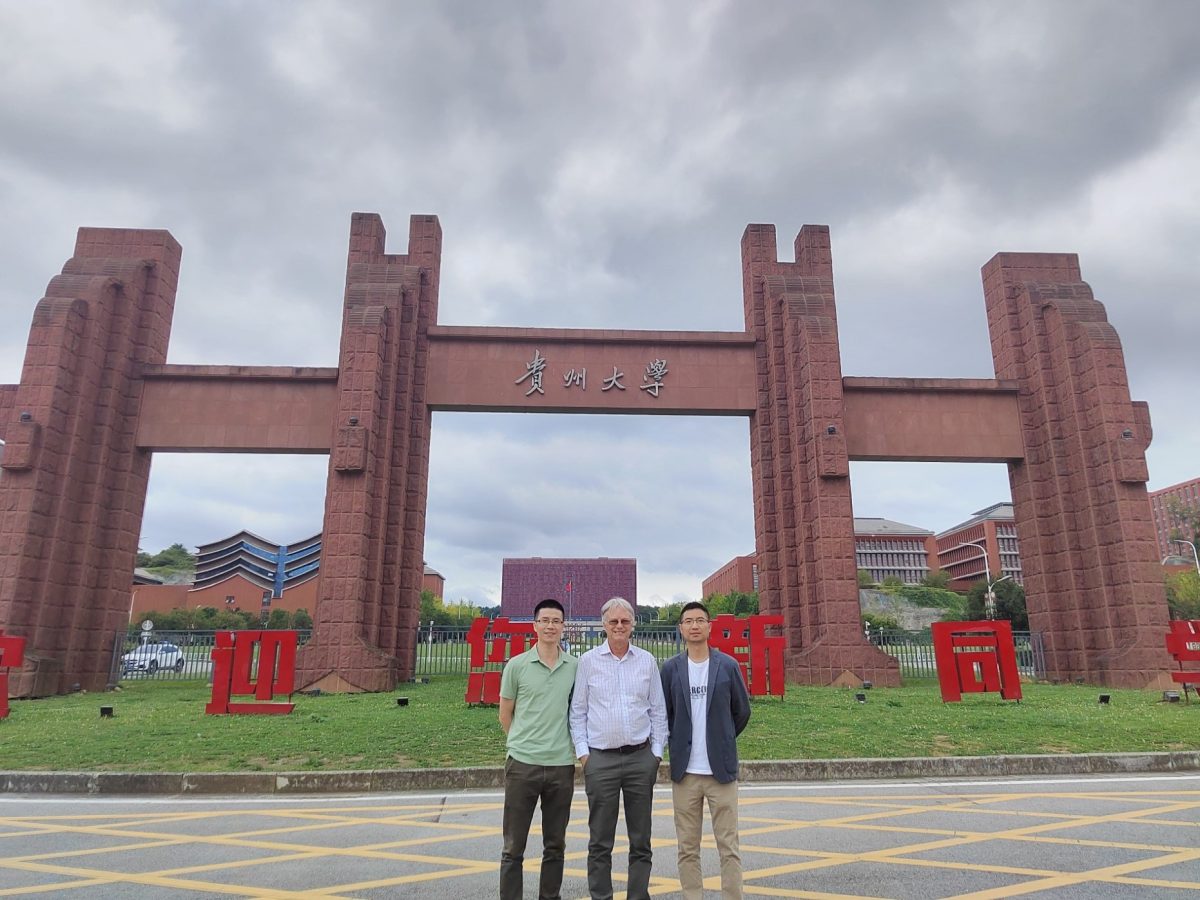
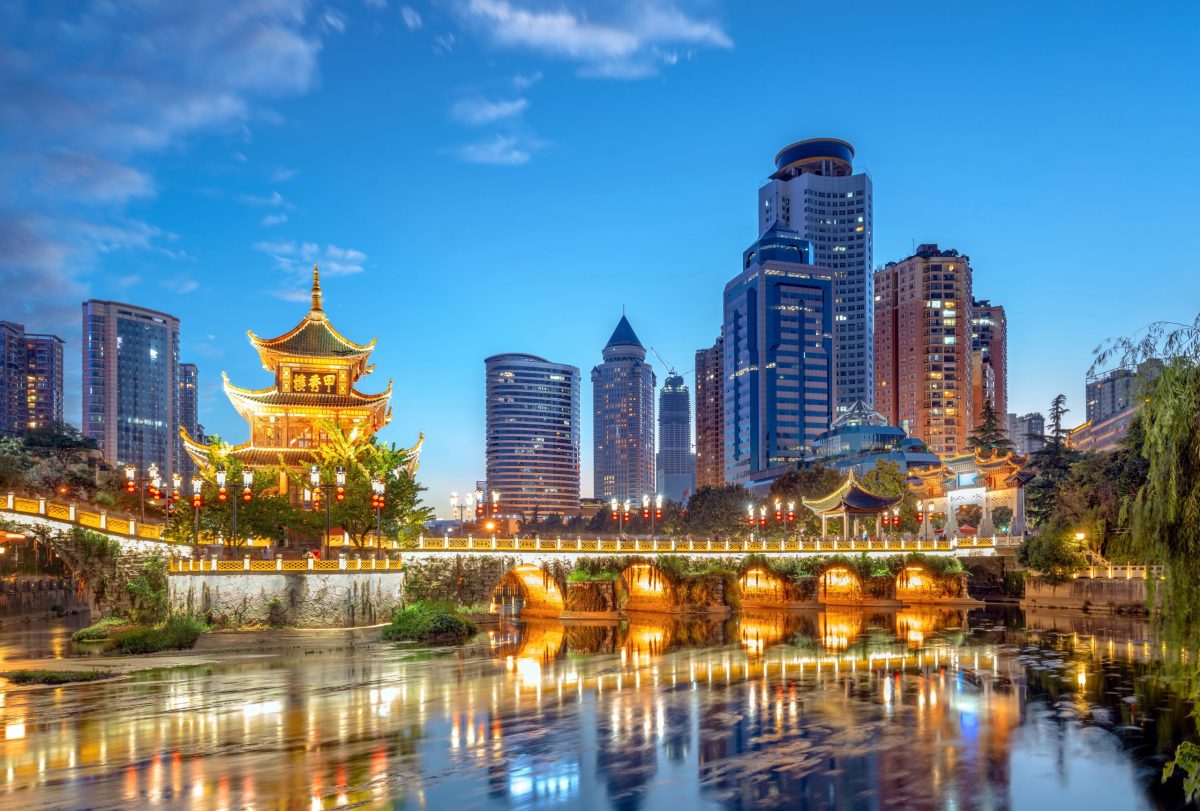
Giuyang, in western China, where Dist. Prof. Tissue and his wife caught up with some former Western Sydney University students. Credit: Shutterstock
“Then we went to Beijing, where I visited the Beijing Forestry University (BFU) and a couple of the big agricultural universities as well as some large equipment manufacturing companies, which are building scientific equipment that we may buy for HIE in the future.”
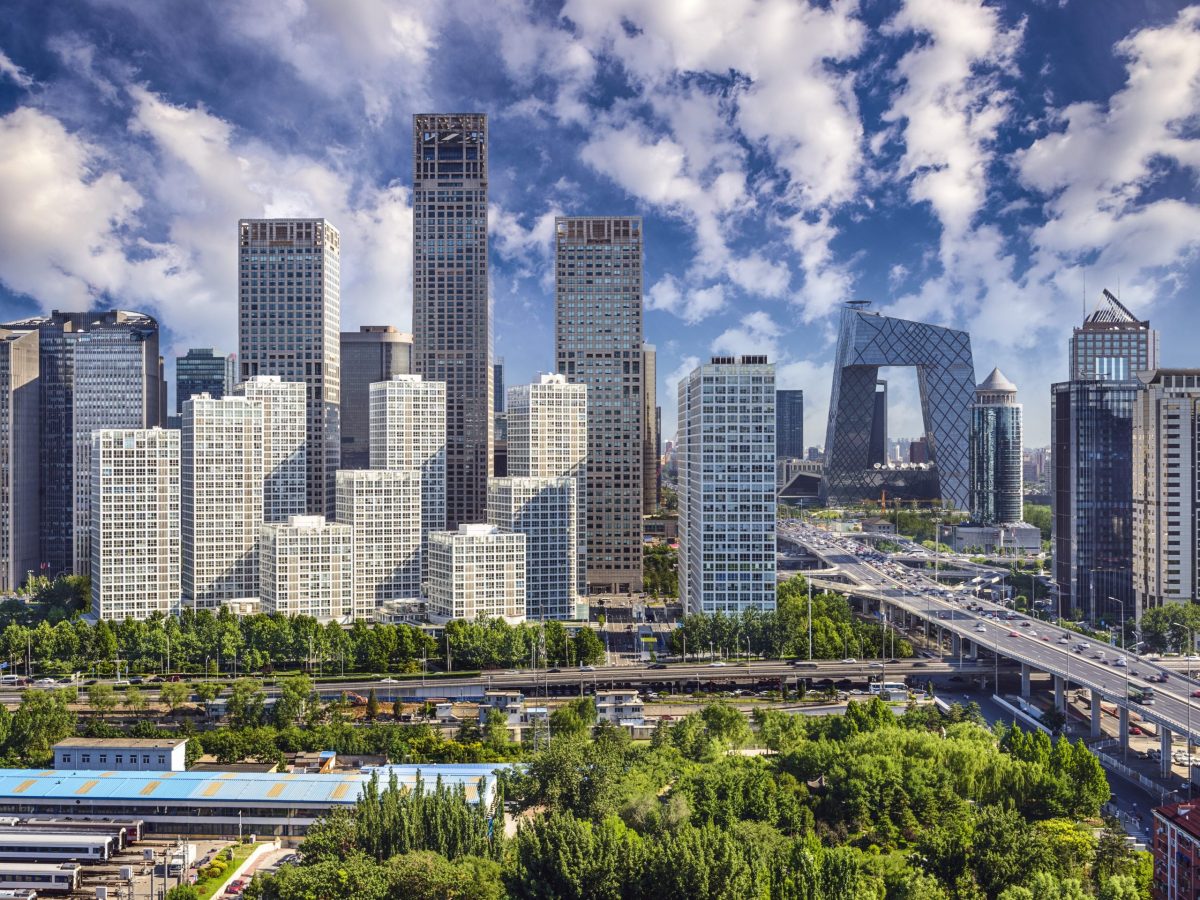
Beijing, the national capital, where Dist. Prof. Tissue visited Beijing Forestry University, some of the nation’s leading agricultural universities and some major equipment suppliers. Credit: Shutterstock
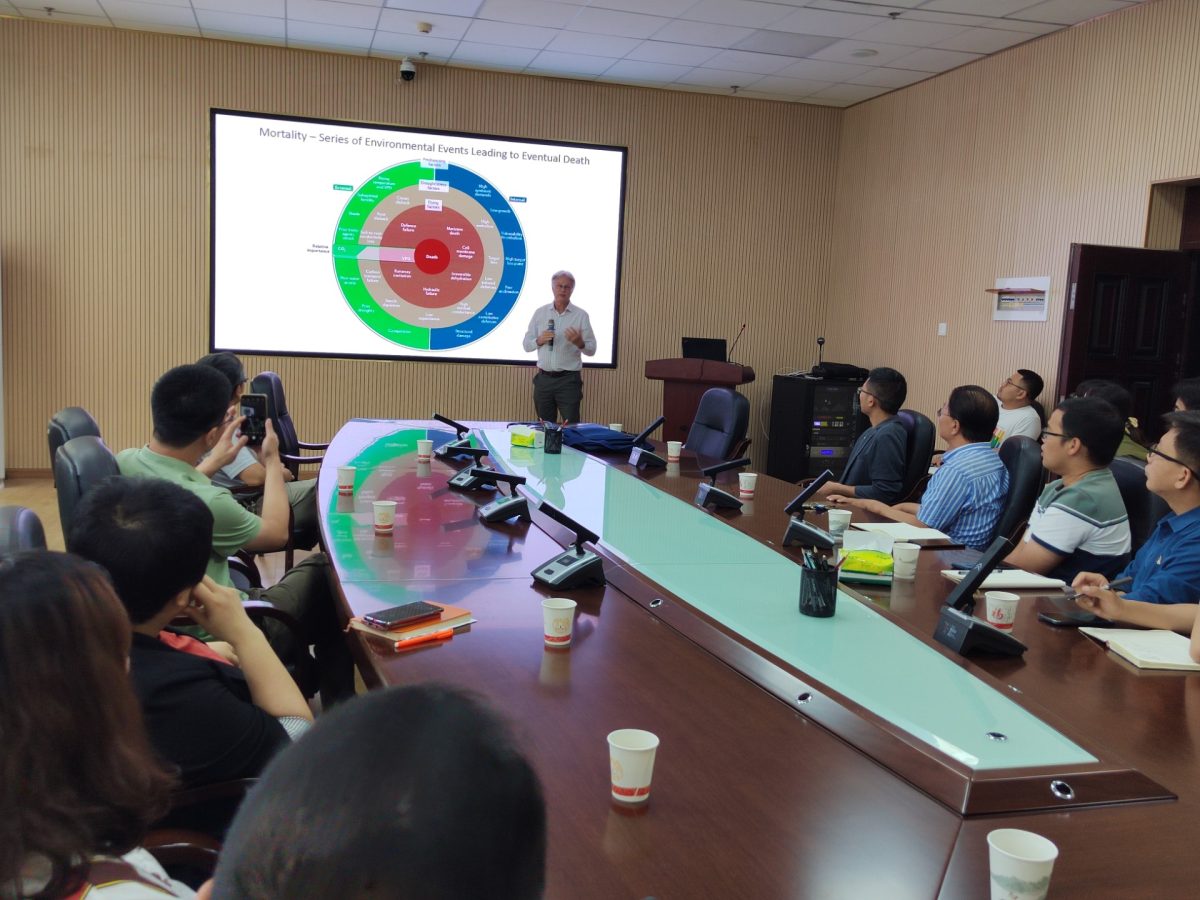
The trip included visits to several leading Chinese research institutions. Image courtesy of Ting Wu
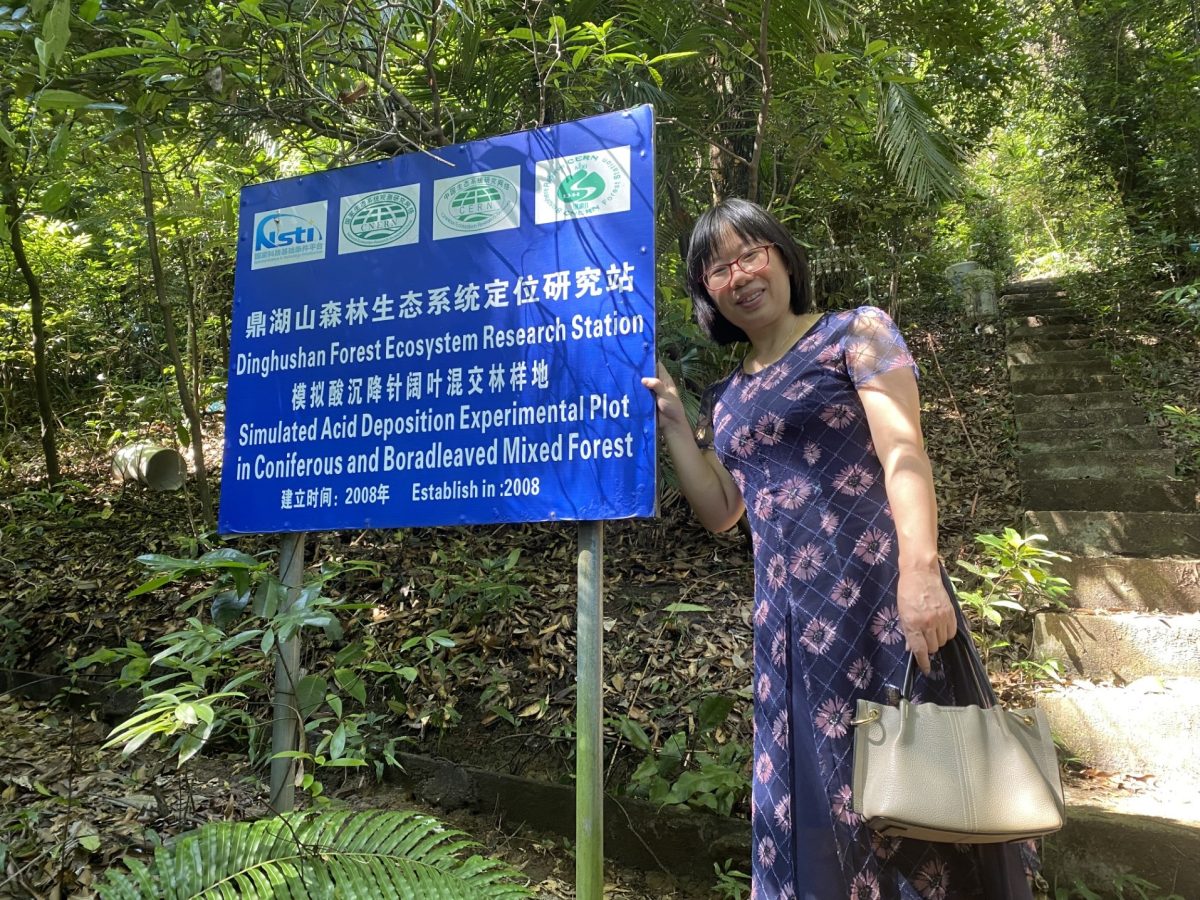
One interesting visit was to the Dinghushan Forest Ecosystem Research Station. Image courtesy of Ting Hu
One advantage China has over many other nations is its huge population, Dist. Prof. Tissue says: “They have five times the number of researchers we have in Australia – so they can make advancements faster.
“For example, some researchers we visited in China just got funding for a flux tower that is 140 metres high and can collect forest data from 200 kilometres all around it. It can gather data on water and carbon exchange from five different points on the tower. Then they will send researchers out into that forest to collect more data on water and carbon exchange from the forest floor.”
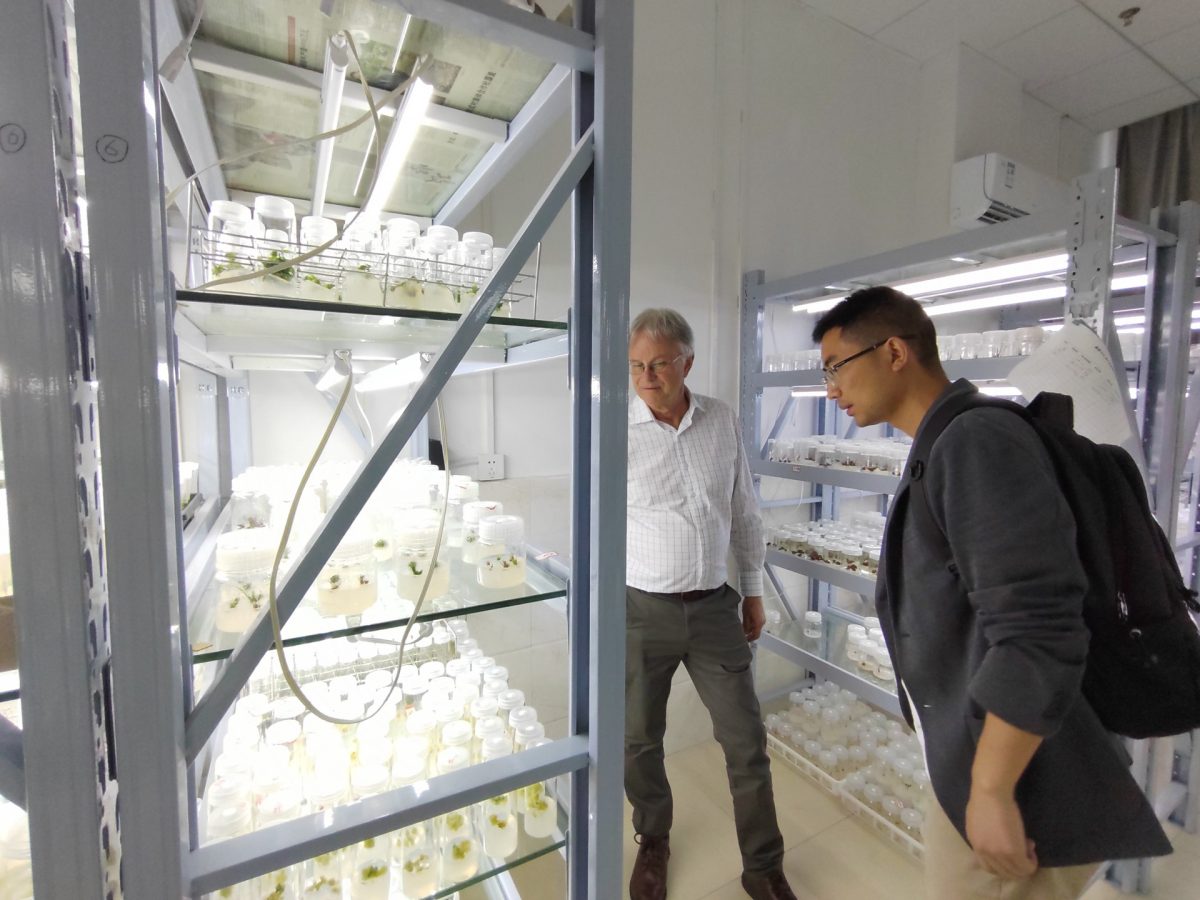
Dist. Prof. Tissue was impressed with Chinese academics’ willingness to share knowledge and expertise. Image courtesy of Ting Wu
Dist. Prof. Tissue was also impressed by his Chinese counterparts’ work ethic and willingness to share knowledge and expertise– among themselves and with the research community worldwide. “In China, the academics are very interested in collaborating,” he says. “They have offered me a 10-year visa so we can continue our knowledge exchange.
“They have a big interest in science and are very well educated,” he adds. “We have several postdocs and graduate students here at WSU from China and they work very hard. They’re very good researchers. We recently had two papers with our postdocs here accepted by reputable academic journals, and we have four more under review right now. That may be because in China, they work seven days a week, every week. There’s no such thing as weekends! They all work an average of 60 hours a week. And with around 1.4 billion people in the country, that’s a lot of output.”
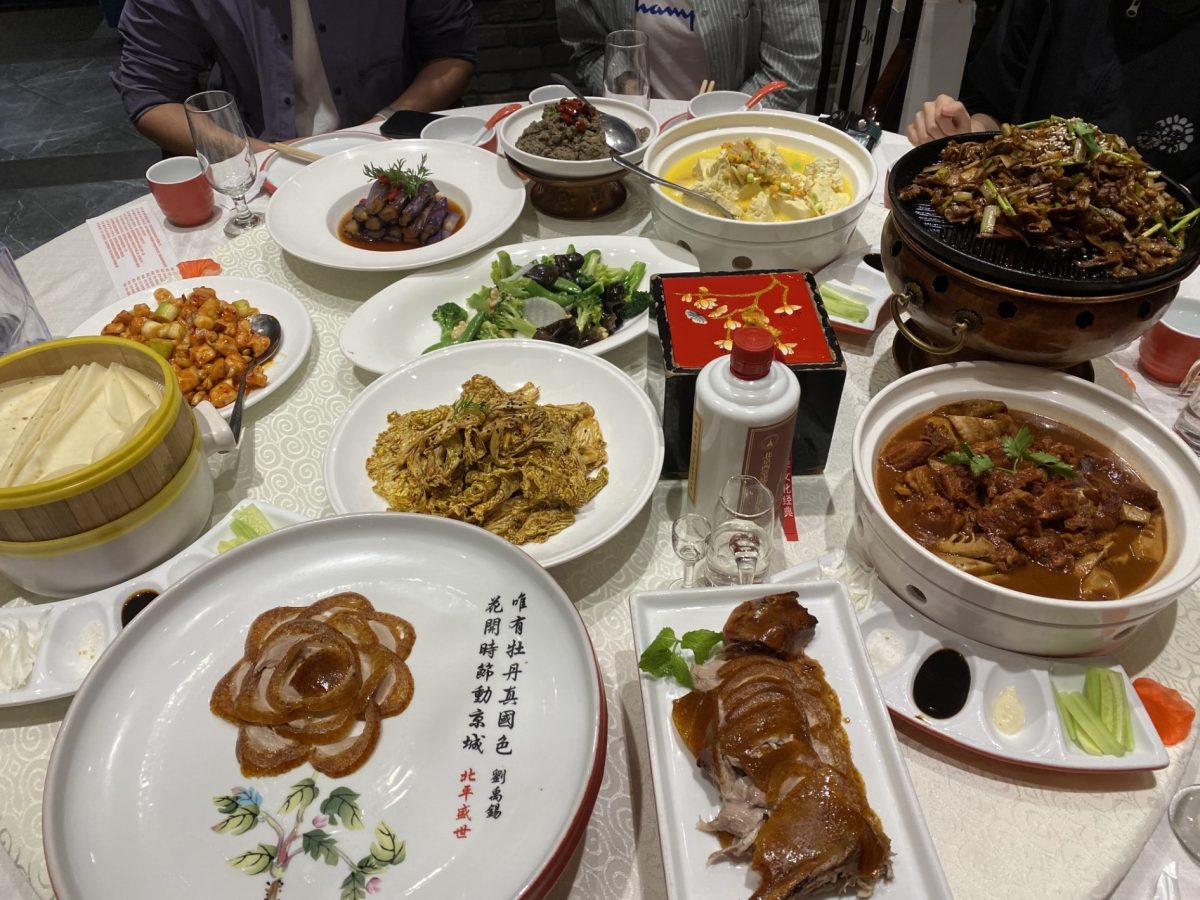
One of several memorable meals the visitors were treated to during their China trip. Image courtesy of Ting Wu
Between times, eating is something of a national pastime: “We had about 800 to 100 different Chinese dishes during our visit,” Dist. Prof. Tissue recalls. ‘We don’t have nearly the same variety in Chinese restaurants in Australia. It was spectacular.”
The Tissues also managed to squeeze in some sightseeing – including to scenic natural attractions such as waterfalls and to the Great Wall of China, a must-see landmark.
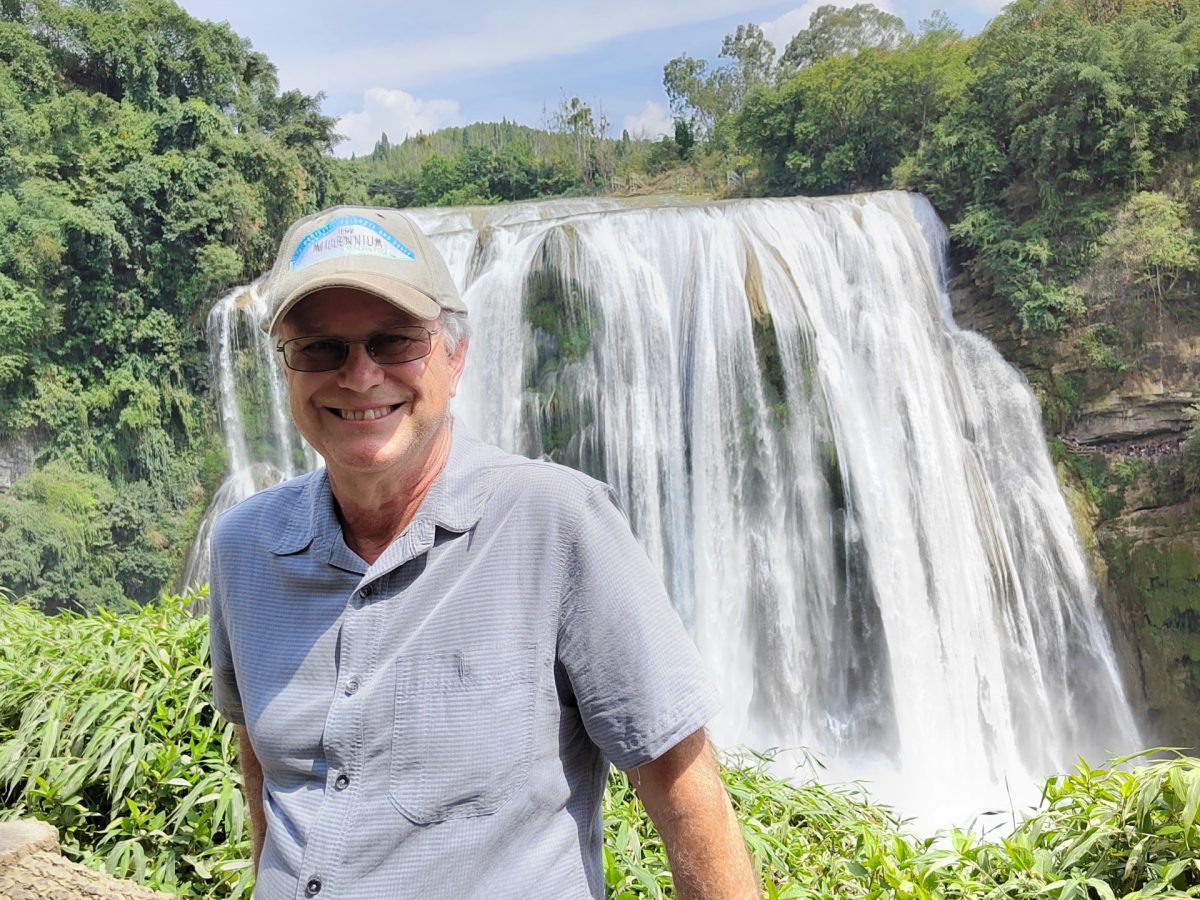
Taking time out to visit one of China’s many natural attractions. Image courtesy of Ting Wu
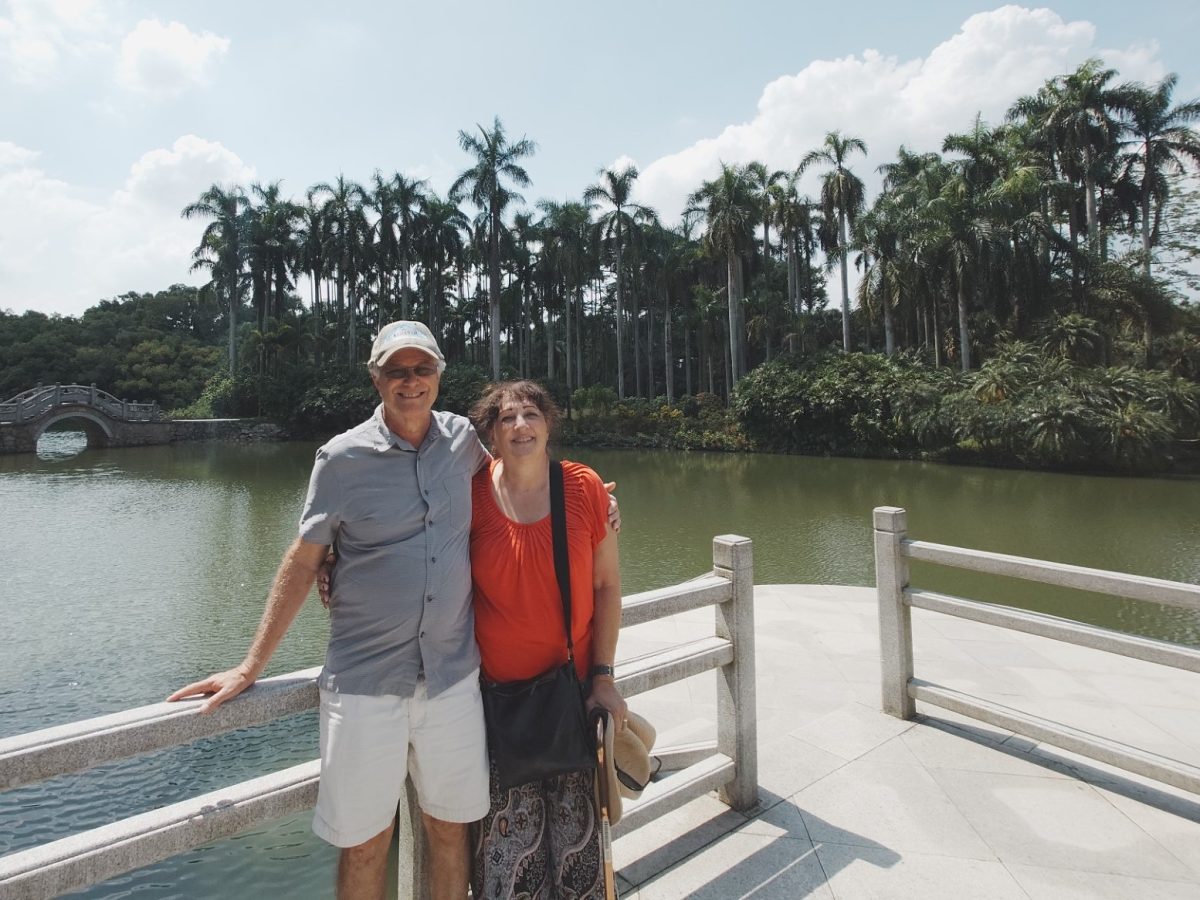
The Tissues enjoying some downtime together in China. Image courtesy of Ting Wu
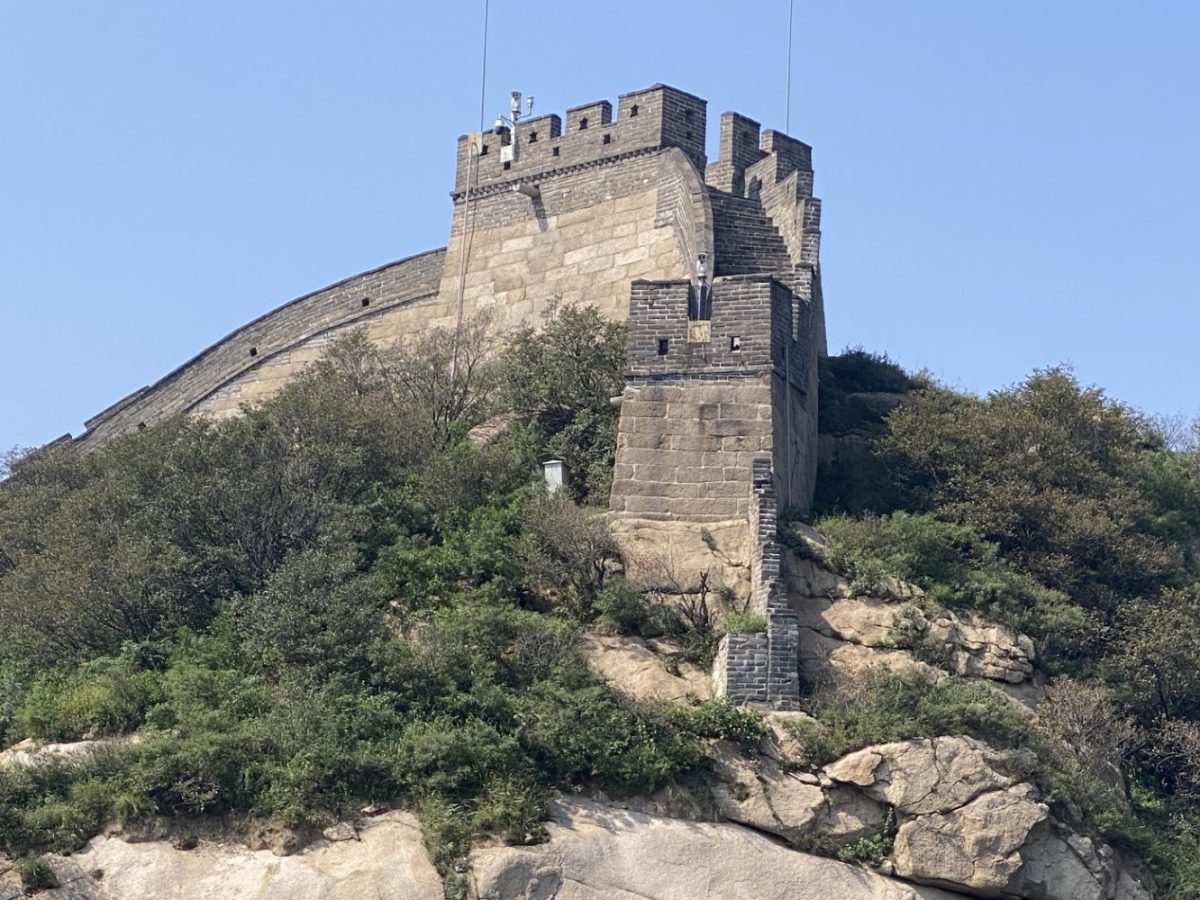
Dist. Prof. Tissue and his wife couldn’t miss seeing one of the world’s most impressive manmade structures, the Great Wall of China. Images courtesy of Ting Wu
Their Chinese hosts were very generous, Dist. Prof. Tissue says. We were given so may beautiful gifts: My wife was gifted a silk scarf, and a beautiful pearl necklace; I was given lots of alcohol. We brought them some little boomerangs – next time, we will have to bring more – perhaps some Australian gourmet food… and Vegemite, of course, for its umami flavour.”
Lead image: Dist. Prof. Tissue gave talks to the Chinese Academy of Sciences and visited some of the nation’s leading agricultural universities on his recent trip to China. Image courtesy of Dr Ting Wu


